
Education is the process of facilitating learning, or the acquisition of knowledge, skills, values, morals, beliefs, and habits. Educational methods include teaching, training, storytelling, discussion and directed research. Education frequently takes place under the guidance of educators, however learners can also educate themselves. Education can take place in formal or informal settings and any experience that has a formative effect on the way one thinks, feels, or acts may be considered educational. The methodology of teaching is called pedagogy.
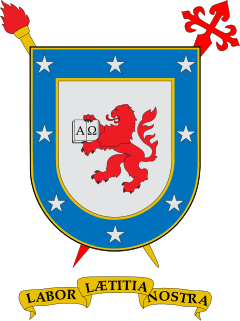
The University of Santiago, Chile (Usach) is one of the oldest public universities in Chile. The institution was born as Escuela de Artes y Oficios in 1849 by Ignacy Domeyko, under the government of Manuel Bulnes. It became Universidad Técnica del Estado in 1947, with various campuses throughout the country. In 1981, as a consequence of a reform on higher education under the dictatorship of Augusto Pinochet, it became what is now known as Universidad de Santiago de Chile, with all activities centered in a single 340,000 m2 campus in the capital Santiago.
Education in Mexico has a long history. The Royal and Pontifical University of Mexico was founded by royal decree in 1551, a few months after the National University of San Marcos in Lima. By comparison, Harvard College, the oldest in the United States, was founded in 1636 and the oldest Canadian University, Université Laval dates from 1663. Education in Mexico was, until the twentieth century, largely confined to males from the urban and aristocratic elite and under the auspices of the Roman Catholic Church in Mexico.
An undergraduate degree is a colloquial term for an academic degree earned by a person who has completed undergraduate courses. In the United States, it is usually offered at an institution of higher education, such as a college or university. The most common type of these undergraduate degrees are associate's degree and bachelor's degree. Bachelor's degree typically takes at least three or four years to complete. In some other educational systems, undergraduate education is post-secondary education up to the level of a master's degree; this is the case for some science courses in Britain and some long-cycle medicine courses in Europe. These degrees can be categorised as basic or first professional degrees.
The Senegalese education system is based on its French equivalent. The state is responsible for the creation of an educational system that enables every citizen access to education. Articles 21 and 22 of the Constitution adopted in January 2001 guarantee access to education for all children. However, due to limited resources and low demand for secular education in areas where Islamic education is more prevalent, the law is not fully enforced.

The Universidad Tecnológica de México (UNITEC) is a private university located in Mexico City, and in the States of Guanajuato, Jalisco, México and Querétaro. It offers high school, bachelor, and postgraduate programs. Ignacio Guerra Pellegaud founded it in 1966 and since 2008 is part of the Laureate International Universities Network. The UNITEC has 10 campuses: Cuitláhuac, Marina and Sur in Mexico City; Atizapán, Ecatepec, Los Reyes, and Toluca in the State of Mexico; Leon in the State of Guanajuato; Guadalajara in the State of Jalisco; and Querétaro in the State of Querétaro. Additionally, it has an Online Campus. UNITEC total enrollment is higher than 90,000; more than 64,000 students are concentrated in the campuses of the Mexico City Metropolitan Area, which makes it the largest private university in this country region.
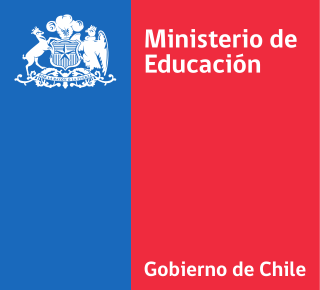
Education in Chile is divided in preschool, primary school, secondary school, and technical or higher education (university).The levels of education in Chile are:
Education in Lebanon is regulated by the Ministry of Education and Higher Education (MEHE). In Lebanon, the main three languages, English and/or French with Arabic are taught from early years in schools. English or French are the mandatory media of instruction for mathematics and science for all schools. Education is compulsory from age 6 to 14.

Colombians are people identified with the country of Colombia. This connection may be residential, legal, historical or cultural. For most Colombians, several of these connections exist and are collectively the source of their being Colombian.ref>"Diversity news page". 5 April 2009. Archived from the original on 5 April 2009. Retrieved 9 December 2020.</ref>
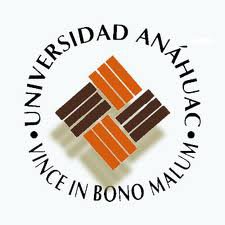
The Universidad Anáhuac México is a private educational institution of higher learning in Mexico, located on two campuses:
Education in Peru is under the jurisdiction of the Ministry of Education, which oversees formulating, implementing and supervising the national educational policy. According to the Constitution of Peru, education is compulsory and free in public schools for the initial, primary and secondary levels. It is also free in public universities for students who are unable to pay tuition and have an adequate academic performance.
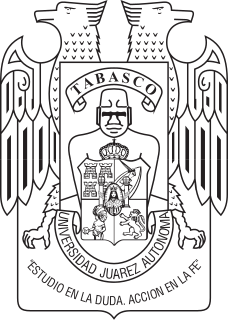
Universidad Juárez Autónoma de Tabasco is a public institution of higher learning located in Villahermosa, Tabasco, Mexico. The mission of the university is "to prepare professionals with broad and deep expertise in their area of study to fill the needs of Tabasco and the country at large." UJAT is the largest and most prominent university in the state of Tabasco. During the 2007-2008 academic year the University enrolled 35,271 students and had a teaching staff of over 2,000. For the same school year the University offered bachelor's degrees in 36 disciplines, master's degrees in 26 areas, three doctoral degrees, and post-graduate Certificates (Especialidades) in 17 graduate areas of specialization. The University grants law, education, management, engineering, medicine, architecture, nursing, and dentistry degrees, plus some 30 additional degrees in other fields of study.
The Ecuadorian Constitution requires that all children attend school until they achieve a “basic level of education,” which is estimated at nine school years.

The Intercultural Open University Foundation (IOUF) is an international non-profit charitable organization that provides distance learning courses to master's and PhD students. IOUF offers dual degree programs in association with Universidad Azteca and its partner the Universidad Central de Nicaragua (UCN). Upon successful completion of the course, students are awarded with the Doctor of Philosophy, PhD degree in consortium with UAzteca and UCN.
Intercultural Bilingual Education(Educación bilingüe intercultural) is a language-planning model employed throughout Latin America in public education, and it arose as a political movement asserting space for indigenous languages and culture in the education system. IBE is designed to address the educational needs of indigenous communities, and consists of various bilingual curriculum designs.
Despite significant progress, education remains a challenge in Latin America. The region has made great progress in educational coverage; almost all children attend primary school and access to secondary education has increased considerably complete on average two more years of schooling than their parents' generation. Most educational systems in the region have implemented various types of administrative and institutional reforms that have enabled reach for places and communities that had no access to education services in the early 90s.

Eruviel Ávila Villegas is a Mexican politician, member of the Institutional Revolutionary Party, and the Governor of the State of Mexico from 2011 to 2017. Before that, he was Mayor of Ecatepec de Morelos twice, from 2003 to 2006 and from 2009 to 2012, and deputy of the State of Mexico's Congress.

The Autonomous University of the State of Hidalgo is a public university located in Pachuca, the capital of the State of Hidalgo in east-central Mexico, with campuses statewide. The university was initially founded in 1869. It is the oldest, largest, and most respected research university in the state and a member of the Consortium of Mexican Universities (CUMEX).
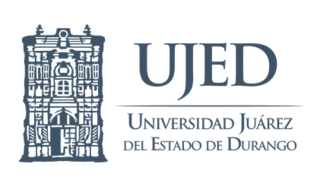
The Universidad Juárez del Estado de Durango is an institution of higher education in the state of Durango, Mexico. Founded in 1856 as a small state college, the university underwent a series of expansions over the course of the 19th and 20th centuries, emerging as a full-scale public research institute in the 1970s with the addition of a medical school and an institute of scientific research. Today the university is one of the largest in the state of Durango, with an enrollment of over 14,000 students.
Global citizenship education (GCED) is a form of civic learning that involves students' active participation in projects that address global issues of a social, political, economic, or environmental nature. The two main elements of GCE are 'global consciousness'; the moral or ethical aspect of global issues, and 'global competencies', or skills meant to enable learners to participate in changing and developing the world. The promotion of GCE was a response by governments and NGOs to the emergence of supranational institution, regional economic blocs, and the development of information and communications technologies. These have all resulted in the emergence of a more globally oriented and collaborative approach to education. GCE addresses themes such as peace and human rights, intercultural understanding, citizenship education, respect for diversity and tolerance, and inclusiveness.
![]() This article incorporates text from a free content work. Licensed under CC-BY-SA IGO 3.0 License statement/permission on Wikimedia Commons . Text taken from Rethinking Education: Towards a global common good? , 47, UNESCO, UNESCO. UNESCO.
This article incorporates text from a free content work. Licensed under CC-BY-SA IGO 3.0 License statement/permission on Wikimedia Commons . Text taken from Rethinking Education: Towards a global common good? , 47, UNESCO, UNESCO. UNESCO. 









